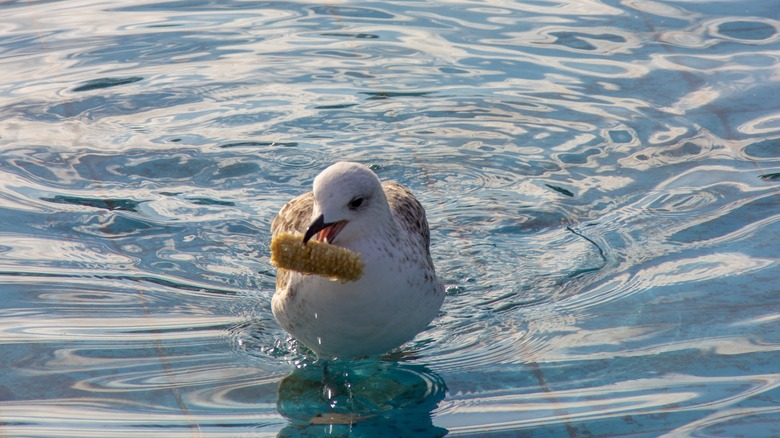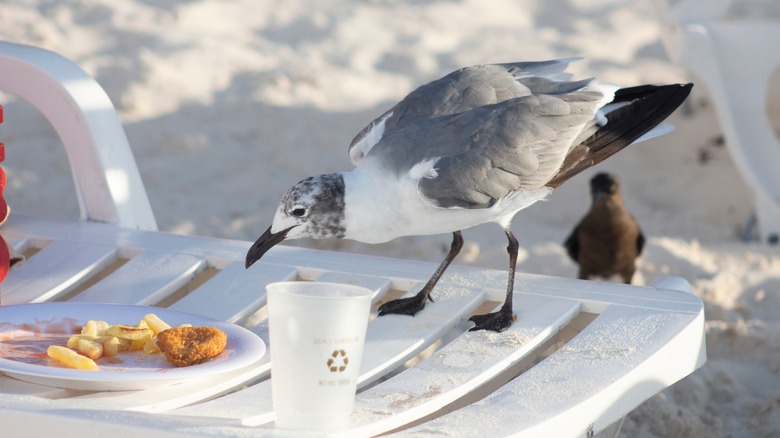If you’re a beachgoer, you’ve probably experienced startling and audacious cases of snack theft from seagulls. Unfortunately, standard tips for keeping your valuables safe at the beach aren’t going to cut it this time. These avian thieves are known for the mischief they cause around people who are only trying to enjoy a peaceful day at the beach. Funnily enough, you might want to think these birds are just being cheeky, but think again: Every move of theirs is calculated, as they have learned to watch humans closely, while they carefully swoop in to steal snacks at the perfect moment when a person is distracted.
Research has revealed that seagulls are a clever species of birds and that they tend to swipe only at foods that humans have touched. In fact, in a study conducted by researchers from the University of Sussex in the journal Biology Letters, it was observed that nearly 48% of gulls approached food when an experimenter pretended to eat from a food bag, and about 21% of them actually pecked at it. Conversely, only 19% came towards the food — and just 2.5% pecked at it — when it was simply left on the ground without human interaction. This goes to show that seagulls are not only smart but also observant, and they are particularly drawn to what we eat as humans rather than just any random food lying somewhere.
From seagulls to human-food gulls: How times have changed
Seagulls were once dependent on fish and marine scraps as their sources of food, making them truly “sea”gulls, but it seems the times have definitely changed like the tides. Now, many seagulls have adapted their diet to mimic human food choices. From coastal cities to crowded beaches, the gulls have quickly picked up new choices of food made available by us. As a matter of fact, behavioral ecologists have explained that seagulls have grown into opportunistic omnivores, especially in urban settings, and this is made easy based on their keen memory and flexible feeding patterns. They can identify periods of time when people are more likely to start eating and can also recognize people who offer them food and those who shoo them away, thereby helping them make smart decisions about where to steal — and from whom.
Perhaps this shift in behavior is why there have been warnings against feeding the gulls deliberately. Several organizations and individuals have shared their stances against tossing snacks at the seagulls. “Feeding pigeons and gulls can be harmful as it makes them dependent on people and gulls can be very aggressive. Regular feeding results in increasing numbers which may upset the natural balance and adversely affect smaller or rarer birds,” a publication on the Torridge District Council website explains. As a tourist, if you’re not sure of local regulations when visiting a beach, it’s generally advisable to get familiar with essential etiquettes to avoid unexpected eventualities. New York’s Rockaway Beach, for instance, has some etiquette rules you might want to know.




